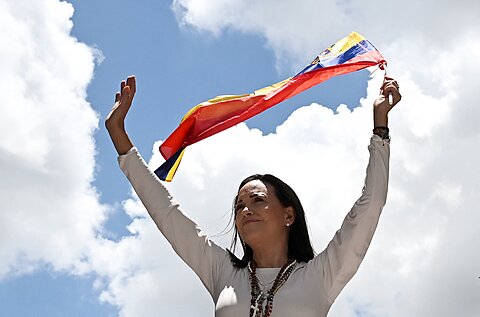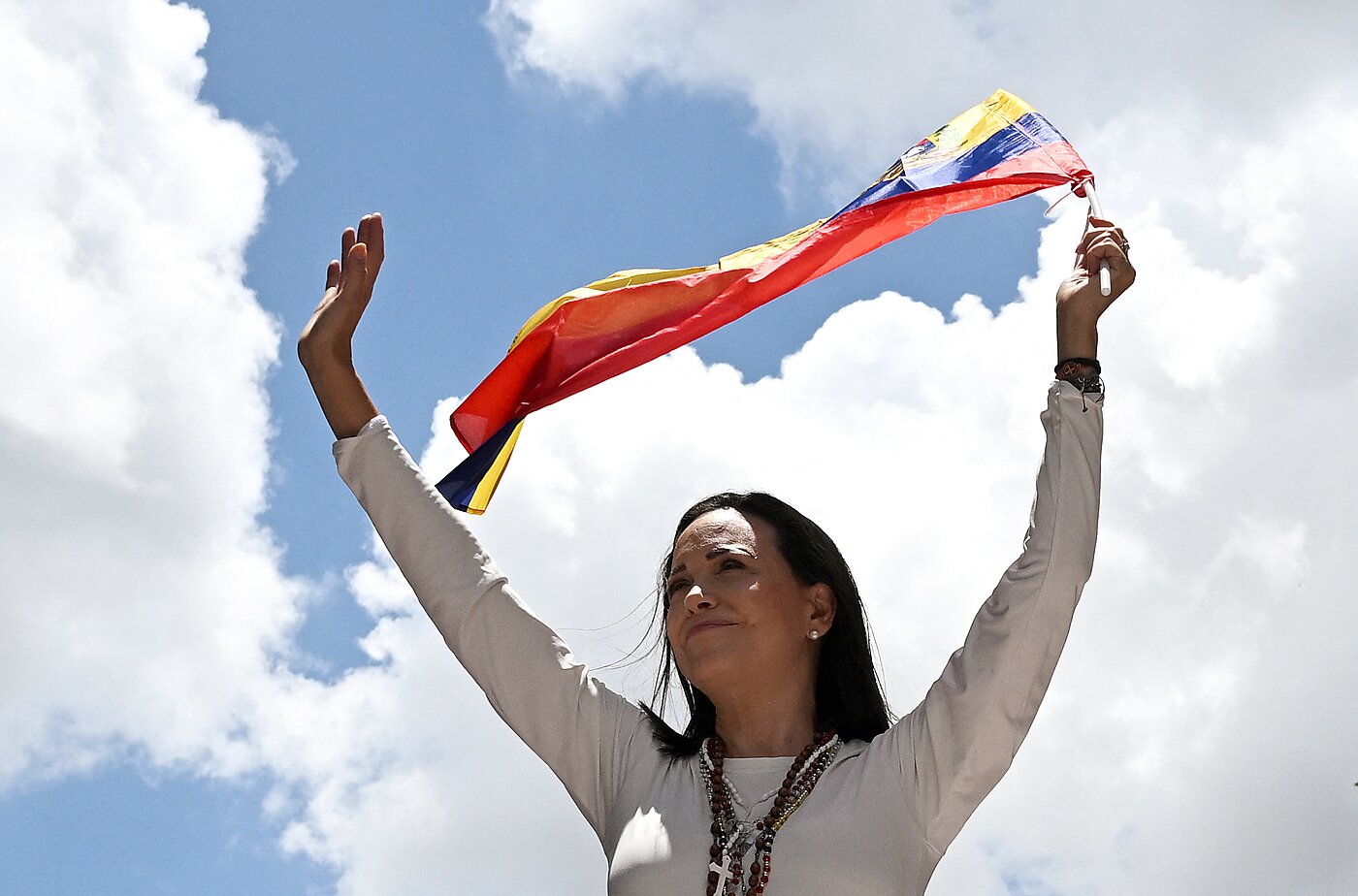Ian Vásquez
Maria Corina Machado has won this year’s Nobel Peace Prize “for her tireless work promoting democratic rights for the people of Venezuela and for her struggle to achieve a just and peaceful transition from dictatorship to democracy.”
The Nobel Committee made an excellent choice. Maria Corina Machado is one of the world’s most admirable leaders. After a quarter century of opposing Venezuela’s Chavista regime, she emerged in the past couple of years as the clear leader of an opposition that, until then, had been internally divisive and ineffective in challenging the regime.
Maria Corina, a sophisticated classical liberal and longtime friend of the Cato Institute, achieved several important goals that took the regime by surprise and that make her unique among Venezuela’s opposition leaders. First, she united Venezuela under a single ballot during the presidential elections last July (as I wrote here). She had the overwhelming support of Venezuelans but was illegally disqualified from running for office, so she supported Edmundo Gonzalez in her place.
One of the reasons Maria Corina was able to unite Venezuelans is that she had earned a high level of credibility over the past couple of decades. She consistently and clearly articulated an agenda to establish a liberal democracy—based on limited power, the rule of law, civil liberties, and a market economy—and proposed an effective strategy to achieve this goal that did not involve compromising on basic principles. (Here she is at a 2009 Cato forum explaining some of those ideas.) She mobilized mass rallies and, time and again, displayed tremendous courage in the face of threats to her life and safety, even as countless supporters were arrested, killed, or tortured.
Second, when the presidential election occurred, her party not only won by receiving nearly 70 percent of the vote, but it was also able to prove its victory through an arduous and complex process of collecting 80 percent of the voting tallies nationwide. The regime nevertheless engaged in what was almost certainly the largest electoral fraud in Latin American history and claimed victory.
But the damage to the regime’s image had been done. In the past, the regime also engaged in unfair play and fraud, but it had control of the narrative and data and was often able to get some “opposition” leaders to play along. Because of the resounding and undeniable defeat of Chavismo, Maria Corina was able to present indisputable evidence to all Venezuelans and the world of the regime’s lack of legitimacy. The farce that Venezuelan authoritarianism is based on a democratic expression of support could no longer be sustained.
The election was historic also (as I wrote days after) because it created a huge problem for the Latin American left that had long supported the Venezuelan regime. As the fraud was undeniable and the Venezuelan regime resorted to extreme violence and widespread repression, the leftist governments of Brazil, Argentina, Chile, Colombia, Nicaragua, and Mexico, for example, had to choose whether to condemn their ally and, if so, how. Some, like Chilean President Boric condemned the fraud and violence, while others fell short, calling only on the regime to provide its evidence or providing it outright support. Maria Corina’s third accomplishment then was to seriously discredit much of the Latin American left for its hypocrisy and partiality to extremism.
All of this has made Maria Corina not just the political leader of the opposition but a moral leader to the vast majority of Venezuelans and many Latin Americans. Since the election, Maria Corina has been in hiding in Venezuela. From there, she continues to issue messages and videos to the nation that call on Venezuelans to take certain actions, interpret the current political reality, and explain her strategy or inspire hope for what she assures is coming soon.
Maria Corina’s message is also heard throughout the rest of Latin America due to the significance of her cause to the region. As she explained in a video for a Cato conference in Argentina last year, shortly before the Venezuelan elections, “If we succeed in upholding the overwhelming will of the majority, we would be looking at how … we begin to construct a Venezuela with republican, ethical, and liberal values. This would have an enormous impact on Venezuelans but also on the region.” She specifically named Cuba and Nicaragua as countries that would follow a democratic course were they to lose support from the Venezuelan dictatorship and their people become inspired by a Venezuelan transition to freedom.
Maria Corina has proven herself to be an effective, well-organized, and savvy leader who has given Venezuelans reasons to hope that they will be free sooner rather than later. Her well-earned Nobel Prize provides further inspiration for her compatriots and all Latin Americans.


